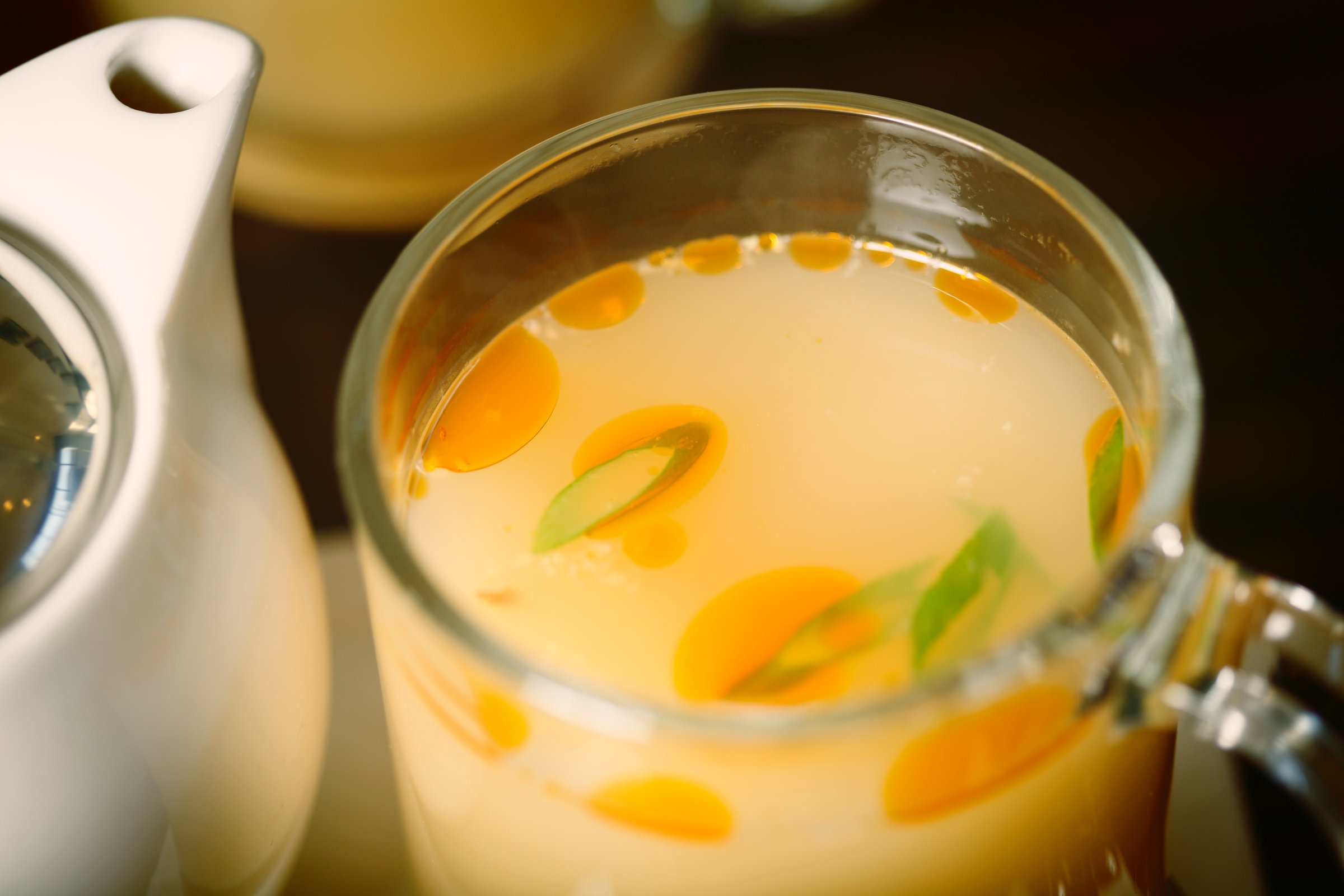
The term “miracle” is thrown around a lot these days, especially when it comes to how and what we eat. Whether it’s adding turmeric or subtracting gluten, people are always searching for a dietary panacea that will fend off disease and rid our bodies of excess weight.
One of the latest food trends, which doesn’t seem to be going anywhere, is bone broth: a stock made primarily from the bones and connective tissue of animals or fish. (The term “bone broth” is a bit of a misnomer; traditionally, a “broth” is differentiated from a “stock” precisely because it doesn’t include animal bones.)
According to the book Nourishing Broth, which seems to have either launched or turbocharged the current broth brouhaha, “real” animal stock (that is, a stock not made from powders) can quell inflammation, speed healing, calm allergies and combat fatigue.
MORE: The 50 Healthiest Foods Of All Time (With Recipes)
It can do all this, the authors write, thanks to its “unique combination of amino acids, minerals, and cartilage compounds.” The authors highlight the benefits of the broth’s collagen and cartilage content which the authors say may help bolster their analogs in the human body, where it’s necessary for healthy bones and skin. Eating it may, then, prevent or relieve osteoarthritis, osteoporosis and other bone- or skin-related diseases, the authors say.
But does it? There isn’t much research on bone broth to support—or refute—these health claims. But several experts on human digestion say the nutrients that supposedly make bone broth special are not, in fact, all that unique.
MORE: Is Quinoa Worth The Health Hype?
“The idea that because bone broth or stock contains collagen it somehow translates to collagen in the human body is nonsensical,” says Dr. William H. Percy, an associate professor and biomedical scientist at the University of South Dakota who has spent more than three decades studying the ways the human gut breaks down and absorbs the food we eat. “Collagen is actually a pretty poor source of amino acids,” he says.
And while there are two protein compounds that are found only in collagen, neither confers any special health benefits, says Dr. D. David Smith, an associate professor of biomedical sciences at Creighton University and an expert in the chemistry of peptides and the biological activity of amino acids.
Just as the dietary fat you swallow doesn’t directly translate to body fat, swallowing collagen doesn’t become collagen in or between your bones. Percy says bone broth may contain both essential and inessential amino acids, and that your body can use these nutrients to augment or support various parts of your skeleton.
MORE: What 5 Amazing Athletes Eat For Breakfast
While that’s also true of meat, eggs, chicken, and other protein sources, it doesn’t make bone broth a terrible source of these amino acids. Your body takes the nutrients from the foods you eat and sends them where they’re needed most, says Dr. Kantha Shelke, a food scientist and principle at Corvus Blue LLC, a Chicago-based food research company. So if your diet was deficient in protein-sourced amino acids, sipping bone broth could provide some of the stuff your body requires to fortify your bones and joints.
But even in this context, you’d benefit more from eating milk or eggs than you would from slurping bone broth, Percy adds.
Like many nutrition trends, Percy says the claims surrounding bone broth are “loosely based” on nutrition science. They just overstate or sensationalize the benefits, and use a lot of personal endorsements to support their claims. “Anecdotes along the lines of ‘I ate bone broth and my gut problem cleared up’ do not count as evidence-based medicine,” he says.
More research is needed, though none of this is to say that bone broth is unhealthy.
It just may not be the magical elixir for all that ails you.
You Asked: Your Top 10 Health Questions Answered










More Must-Reads From TIME
- The 100 Most Influential People of 2024
- Coco Gauff Is Playing for Herself Now
- Scenes From Pro-Palestinian Encampments Across U.S. Universities
- 6 Compliments That Land Every Time
- If You're Dating Right Now , You're Brave: Column
- The AI That Could Heal a Divided Internet
- Fallout Is a Brilliant Model for the Future of Video Game Adaptations
- Want Weekly Recs on What to Watch, Read, and More? Sign Up for Worth Your Time
Contact us at letters@time.com